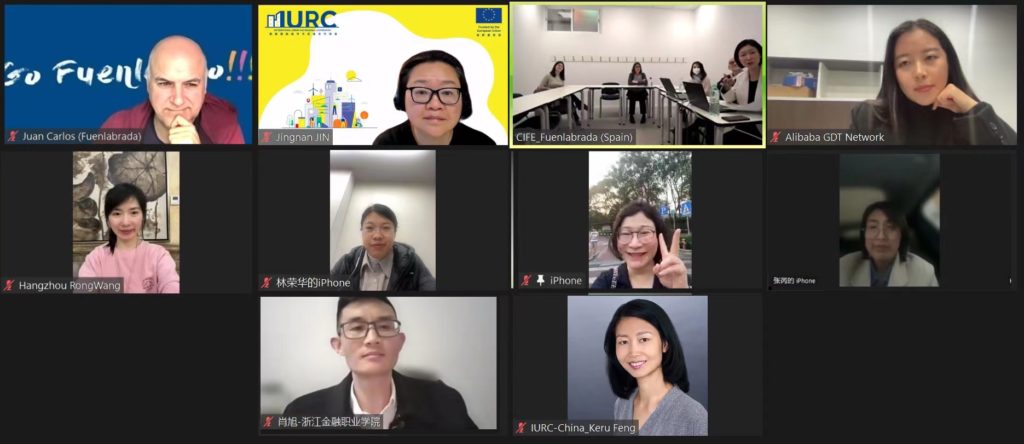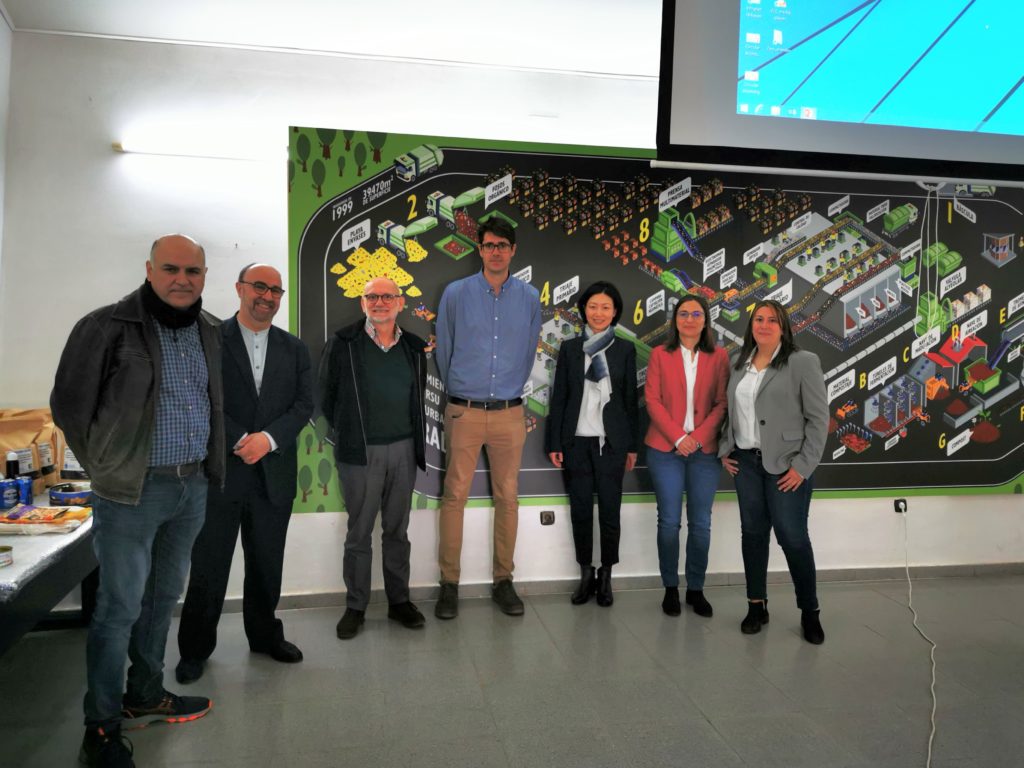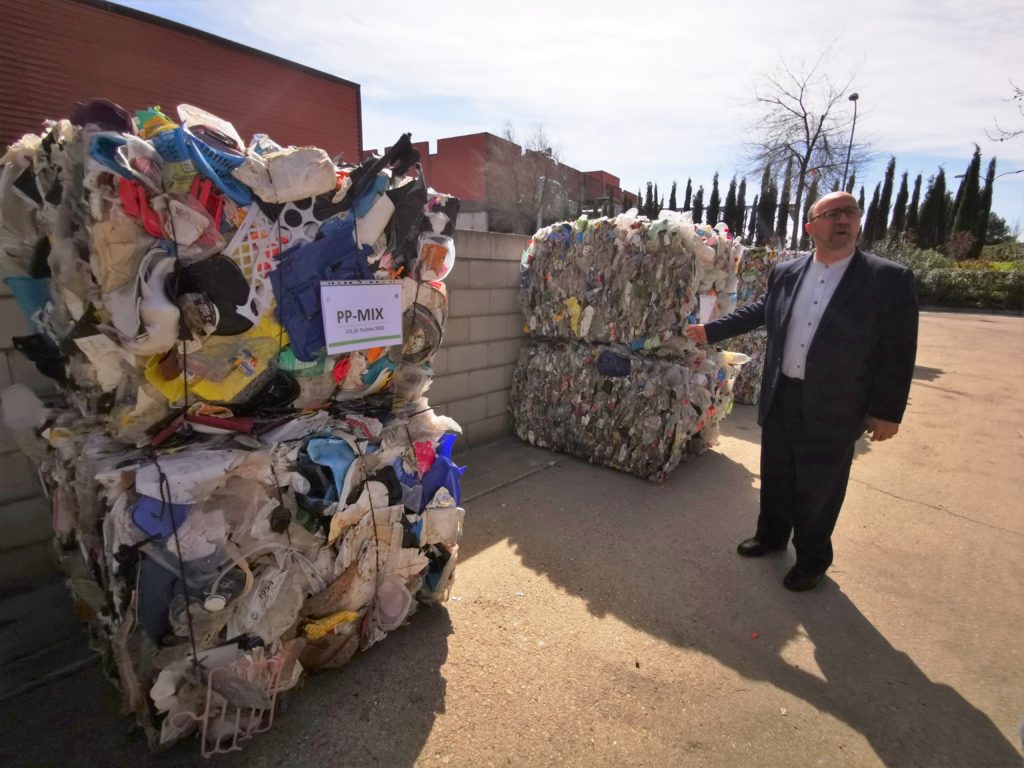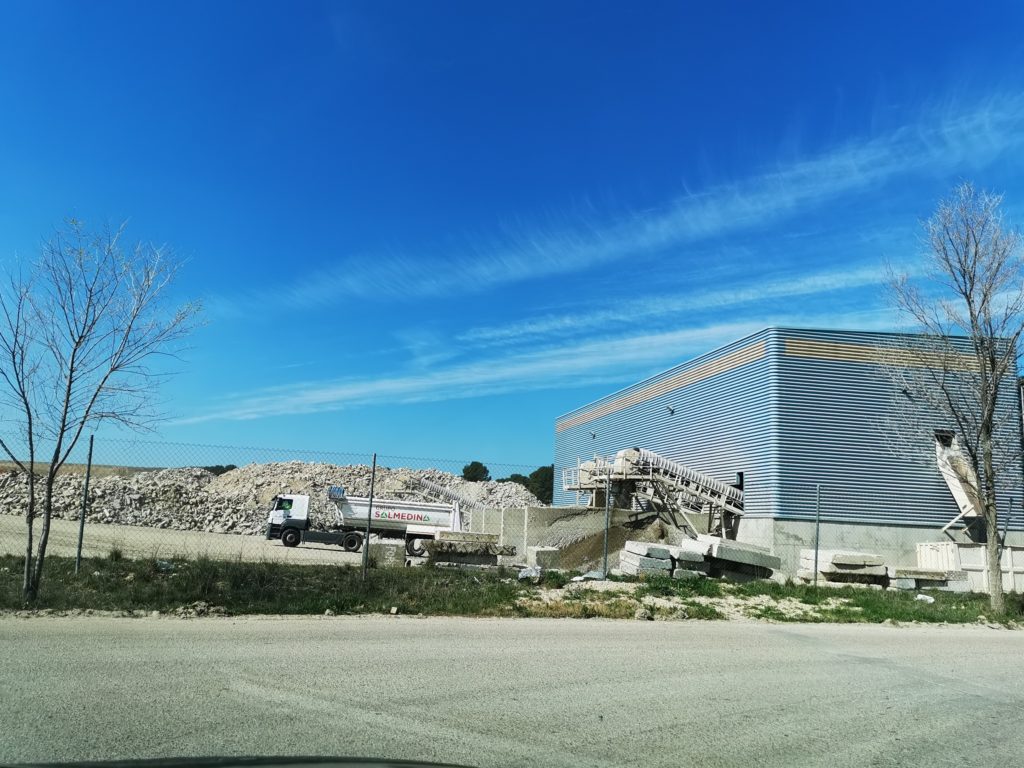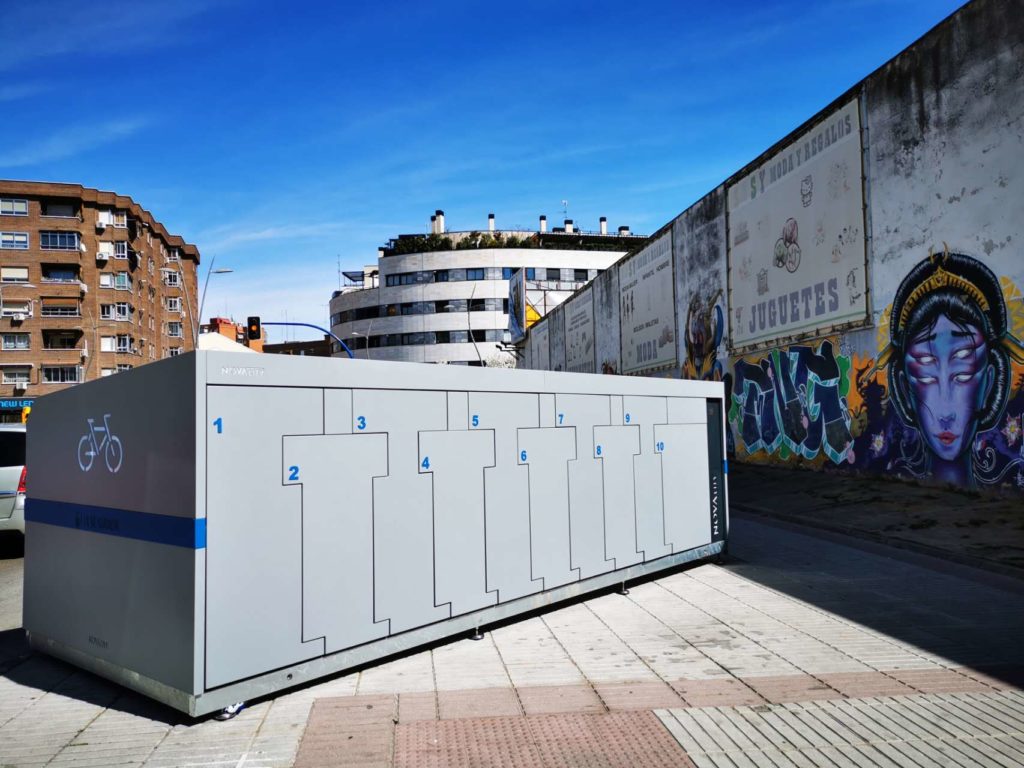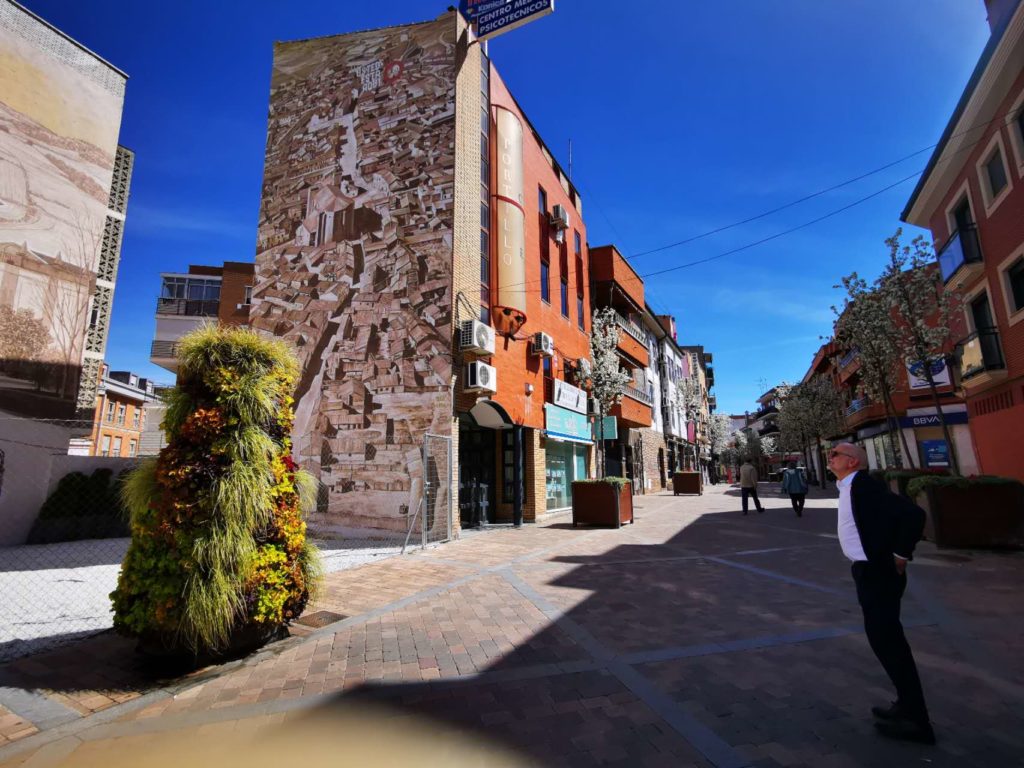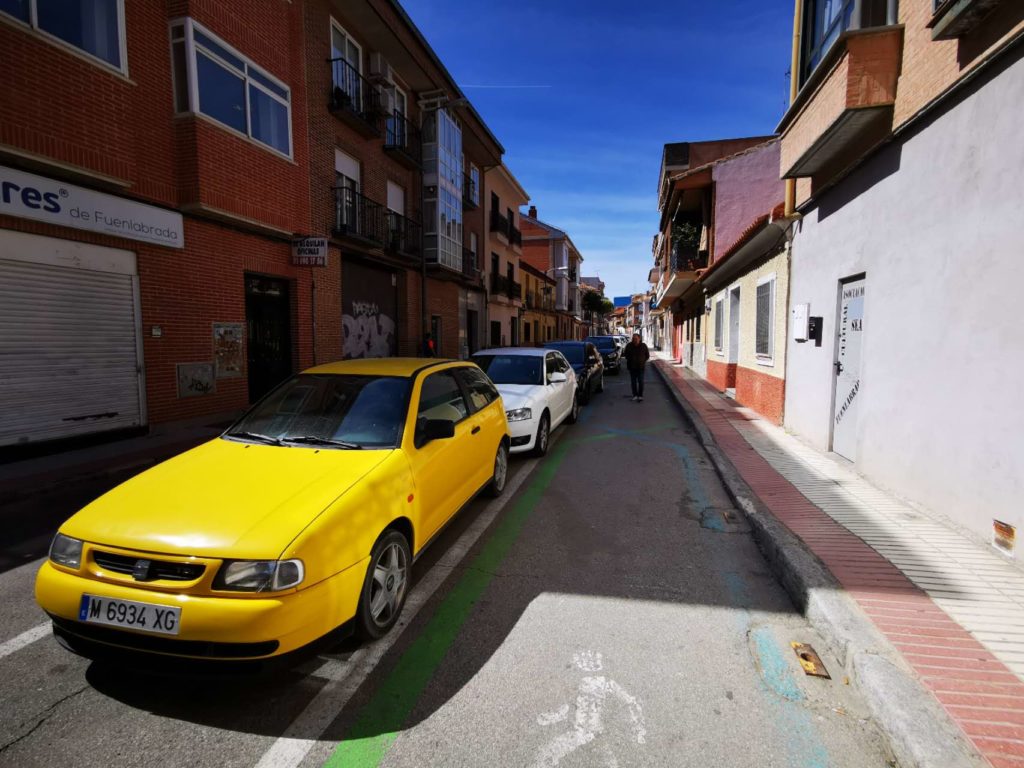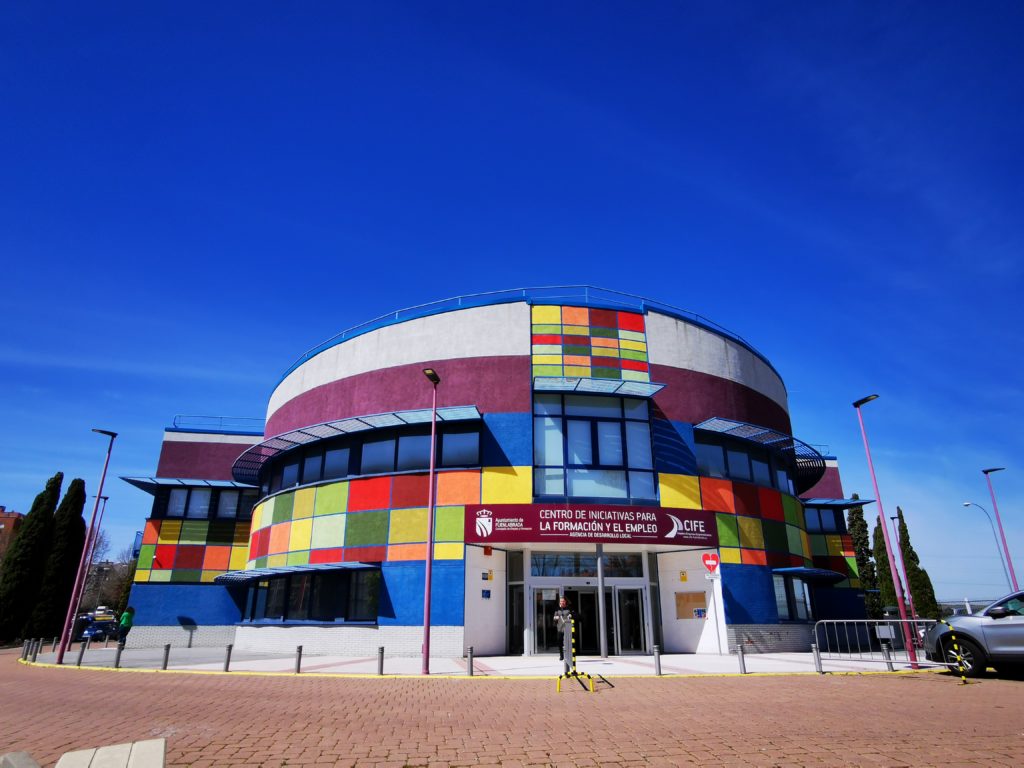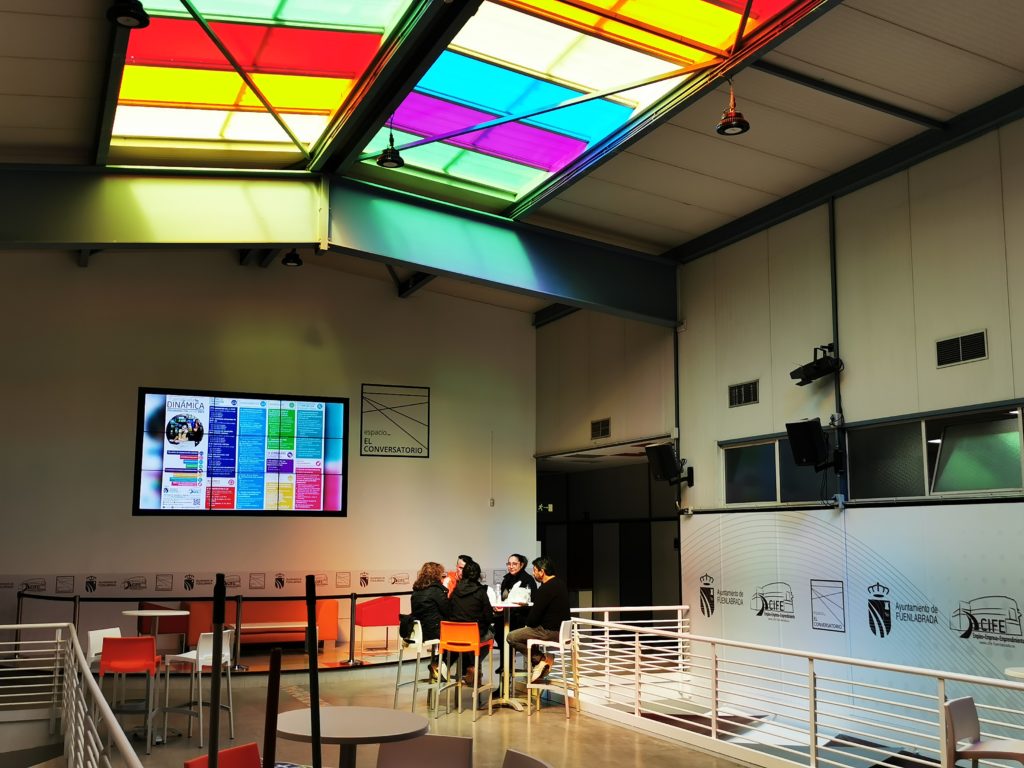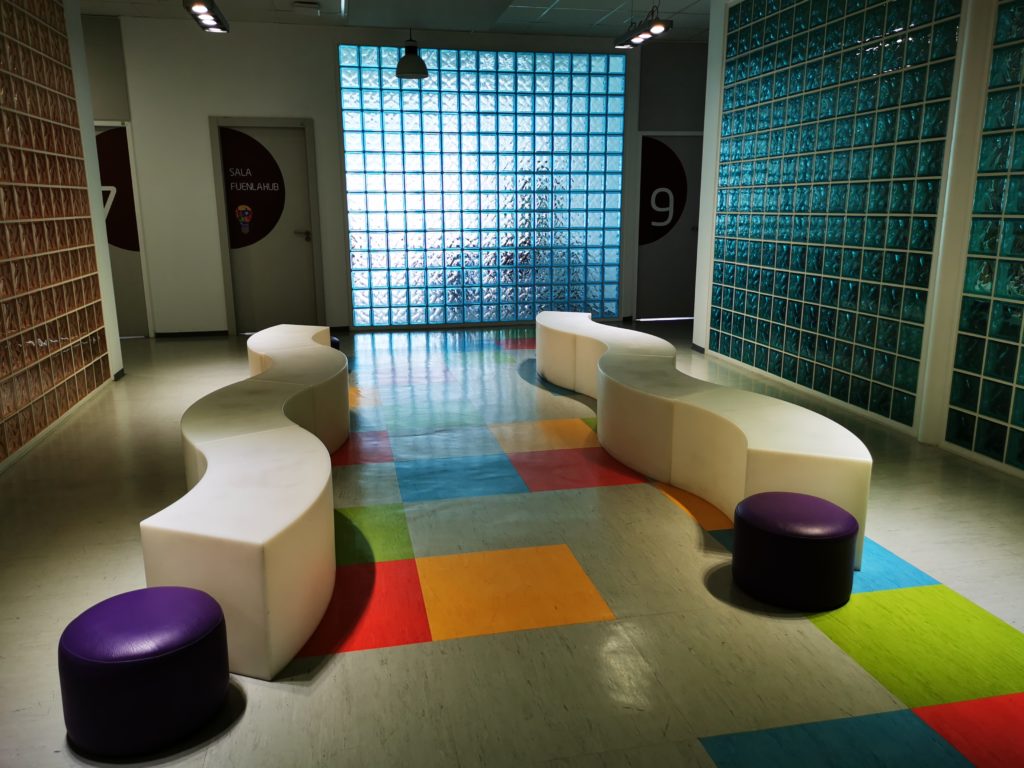On March 21 – 22, 2023, the IURC China team conducted a technical visit to Fuenlabrada (Spain), a municipality that has experienced a remarkable transformation in the past decades, with a population growth of 985% between 1975 to 2021. Fuenlabrada’s success in urban planning, circular economy, and social integration has made it one of the best practice models in IURC cities. This visit aims to meet the key representatives and stakeholders in Fuenlabrada, visit pilot projects, and investigate potential joint actions with Chinese cities in the areas of:
- Circular economy
- Urban planning / public space
- Vocational education, jobs and skills
Circular economy
The visit to Fuenlabrada provided valuable insights into the city’s circular economy strategies. Fuenlabrada is known as the capital of the circular economy in the Madrid region due to its effective waste management policies and the presence of a large number of companies dedicated to the circular economy. The city makes efforts to raise public awareness, carry out selective collections (since 1997) and build a strong industrial capacity to transform waste into resources, contributing to improving the environment and quality of life in the city.
Fuenlabrada has a dense container network in the city and encourages citizen participation, resulting in high recycling rates. The city has been widely recognised for its success in waste management and material recycling. The recycling companies use recovered materials as raw materials in the manufacturing processes for new products, committing to the green growth and circular economy.
Fuenlabrada’s circular economy strategy focuses on waste management, energy, water, and biodiversity. The strategy aims to promote sustainable consumption and production patterns, and the efficient use of resources. Waste management policies emphasize the importance of citizen awareness and the integration of circular economy strategies with the economic and social development of the city through the generation of employment and industry development.
Urban planning
Fuenlabrada endeavoured to regenerate the historical city center in an integrated approach through urban renewal, housing rehabilitation, green infrastructures, mobility, and economic activity. The city develops an urban regeneration strategy that is in line with frameworks such as the Agenda 2030, EU and Spanish Urban Agenda.
Overcoming the model of city sprawl in 80’s and 90’s, the city´s urban development focuses on providing high quality urban services. The IURC China team visited Fuenlabrada’s housing rehabilitation project, which was focused on energy efficiency. The project has helped to reduce GHG emissions and improve the quality of life for residents. The visit included also Fuenlabrada’s green infrastructures project, which aims to increase green public spaces in the city to promote a healthier urban environment.
Fuenlabrada developed an impressive public transportation system that has been seamlessly integrated with other urban areas in the Madrid metropolitan area. The city has taken intervensions to enhance cycling infrastructure and pedestrianized areas in its city center, providing citizens with sustainable and efficient means of mobility.
The urban planning processes were conducted with a participatory approach. Fuenlabrada prioritizes citizen involvement in decision-making related to urban planning and transport. This approach has helped to build trust between the municipality and citizens, resulting in greater support for initiatives to improve the urban environment. The city is also investing in urban infrastructure and services to support job opportunities creation and economic revitalisation.

Vocational education, jobs and skills
Fuenlabrada’s main economic activities are industry, logistics, and services, with a high demand for skilled workers in these sectors. The city council works closely with universities, educational providers and businesses to develop the skills of workforce to meet the needs of the growing industries. One of the efforts is establishing the Center for Initiatives for Training and Employment (CIFE), which offers training programs in fields, e.g., hospitality, health care, management, entrepreneurship, and technology. The center provides training to individuals who want to upgrade their skills, start a business, or pursue a new career.
The city council also works with social organizations to help socially disadvantaged individuals acquire the necessary skills to enter the labour market. One of the city’s pilot projects is the MILMA project, which empowers immigrants to gain training and employment opportunities. The project serves as a best practice for the city’s commitment to promoting social inclusion and equity.
On March 22, 2023, delegates from Fuenlabrada and Hangzhou met online to discuss potential collaborations in e-commerce education and training. The meeting aims to explore opportunities for the two cities to support the local businesses in digitalization and internationalization.
Further details about the meeting and potential collaborations between Fuenlabrada and Hangzhou will be reported separately.
